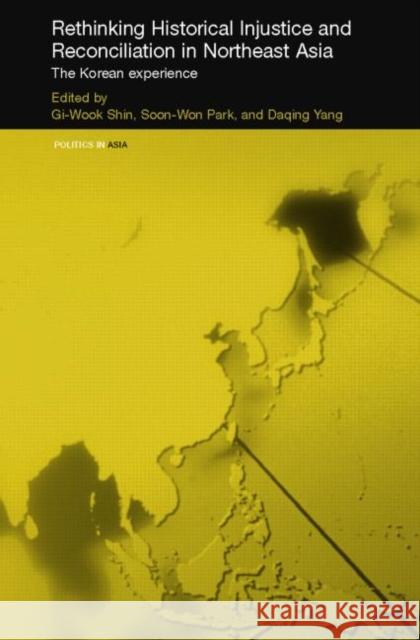Rethinking Historical Injustice and Reconciliation in Northeast Asia : The Korean Experience » książka
Rethinking Historical Injustice and Reconciliation in Northeast Asia : The Korean Experience
ISBN-13: 9780415770934 / Angielski / Twarda / 2006 / 266 str.
Rethinking Historical Injustice and Reconciliation in Northeast Asia : The Korean Experience
ISBN-13: 9780415770934 / Angielski / Twarda / 2006 / 266 str.
(netto: 740,24 VAT: 5%)
Najniższa cena z 30 dni: 705,23
ok. 16-18 dni roboczych.
Darmowa dostawa!
The Northeast Asian region has witnessed phenomenal economic growth and the spread of democratization in recent decades, yet wounds from past wrongs - committed in times of colonialism, war, and dictatorship -still remain. Of all the countries in the northeast region coping with historical injustice, the Republic of Korea has the rare distinction of confronting internal and external historical injustices simultaneously, both as a victim and as a perpetrator. Korea's experience highlights the major forces shaping the reckoning and reconciliation process such as democratization, globalization, regional integration, and nationalism, in addition to providing valuable insight into the themes of historical injustice and reconciliation within the region.
The book aims to move beyond a nation-state oriented analysis of Korea as the victim/aggressor, seeking instead to understand reconciliation as a mutual, interactive concept. Although there is no universal formula for reconciliation, the contributors examine the reaction of society from the perspective of citizens' groups, NGOs, and victim-activist groups towards such issues as enforced labor, comfort women and internal injustices committed during the wars to foster a better understanding of the past and thus aid in future reconciliation between other Northeast Asian countries. "Rethinking Historical Injustice and" "Reconcilation in Northeast Asia" represents the first book written in English to address these significant issues and as such will be of huge interest to those studying East Asian politics, history and society.











